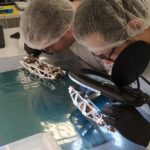The main outcome of the project was the development, verification, and finally the delivery of two flight instruments for the RPWI (Radio-Plasma Wave Investigation) experiment on-board ESA’s JUICE mission to Jupiter. The names of these instruments are LP-PWI (Langmuir Probe – Plasma Wave Instrument) and RWI (Radio Wave Instrument).
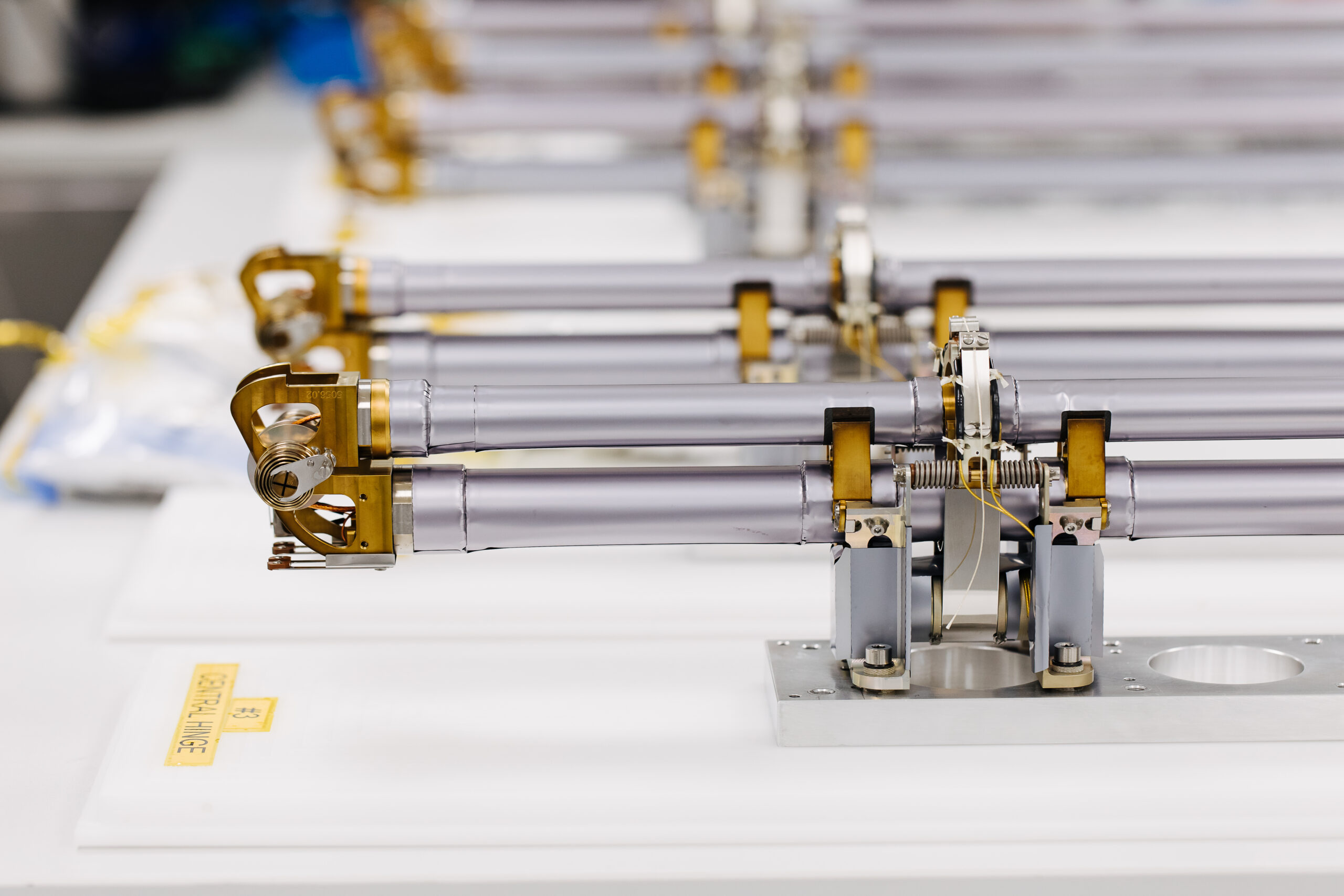
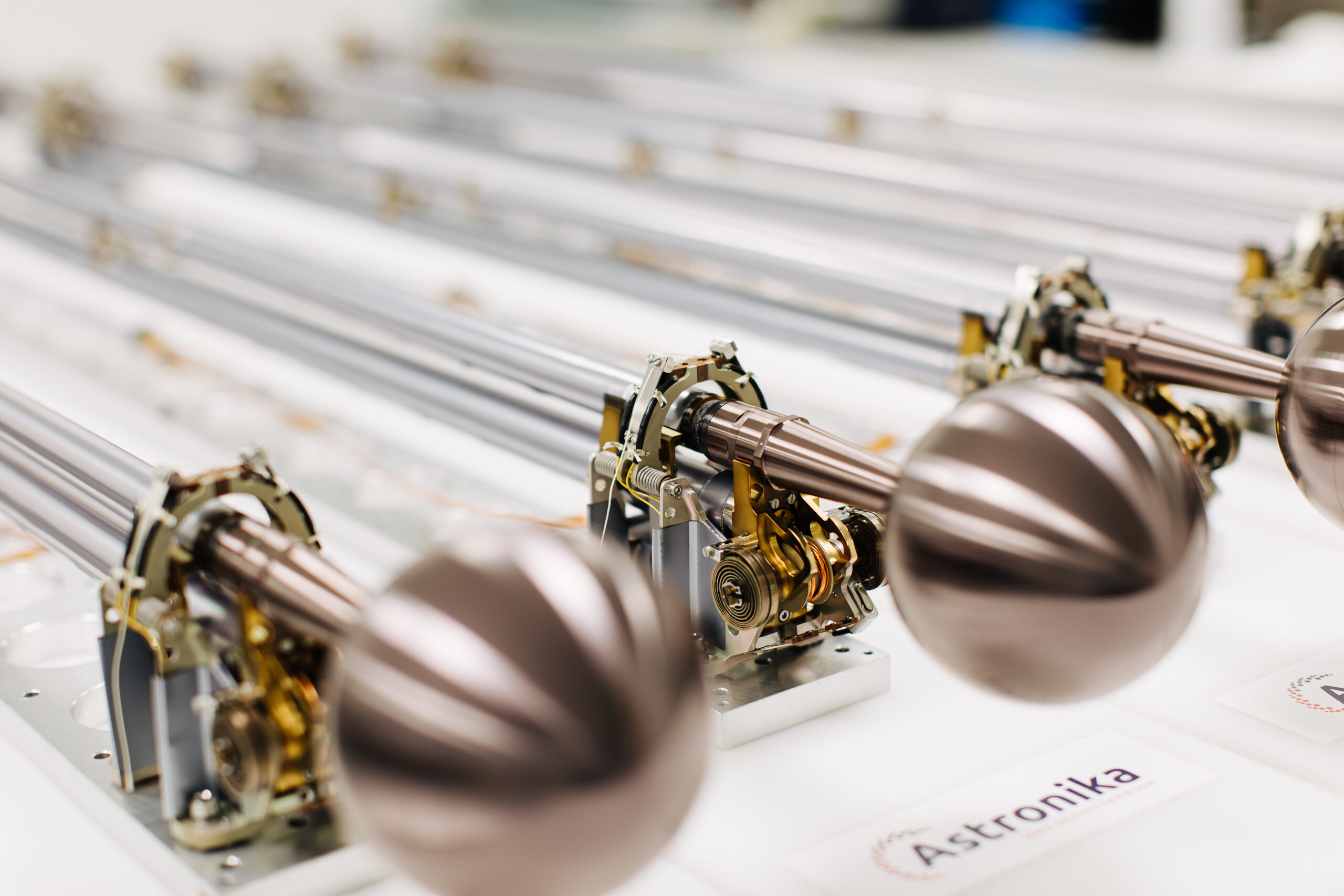
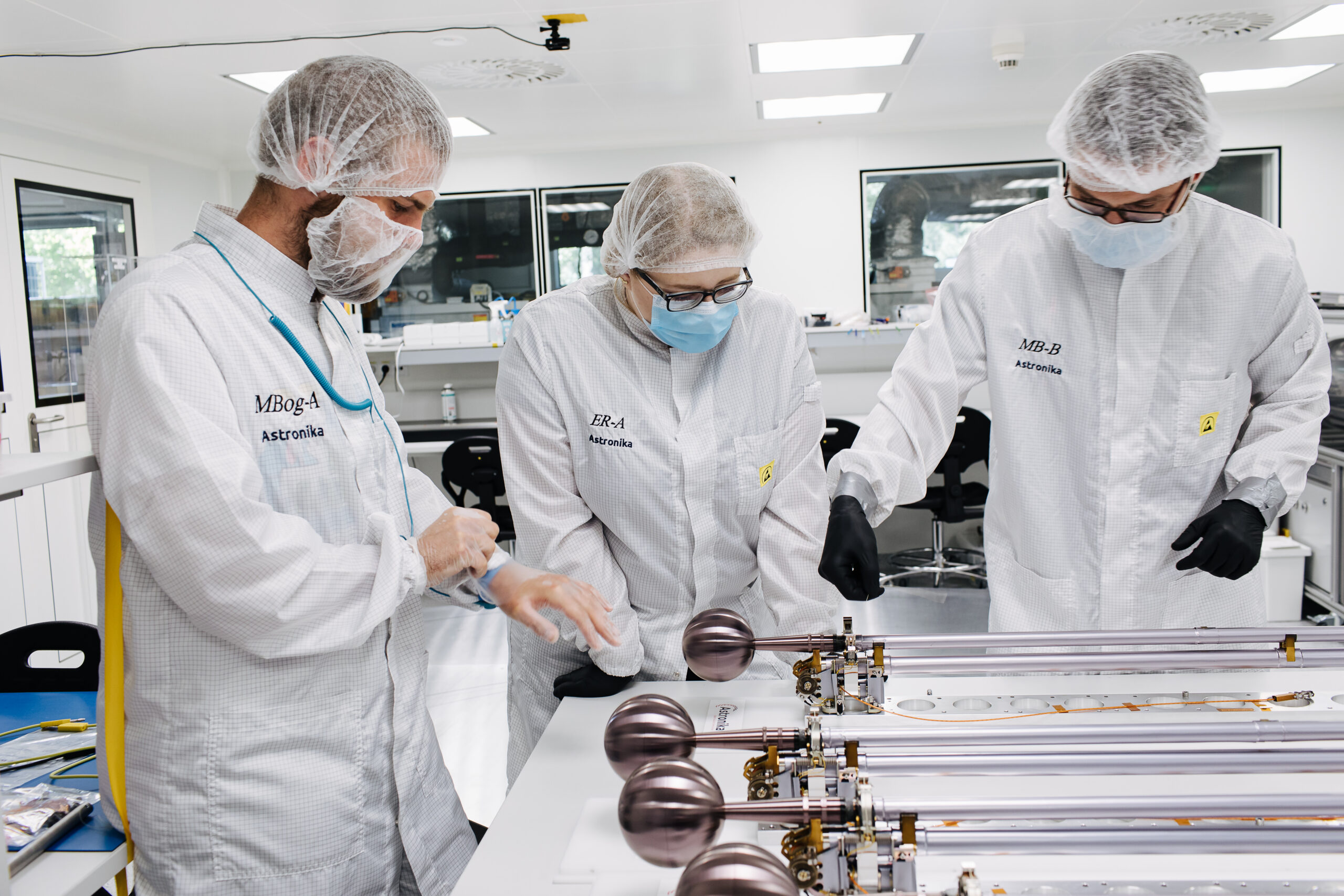
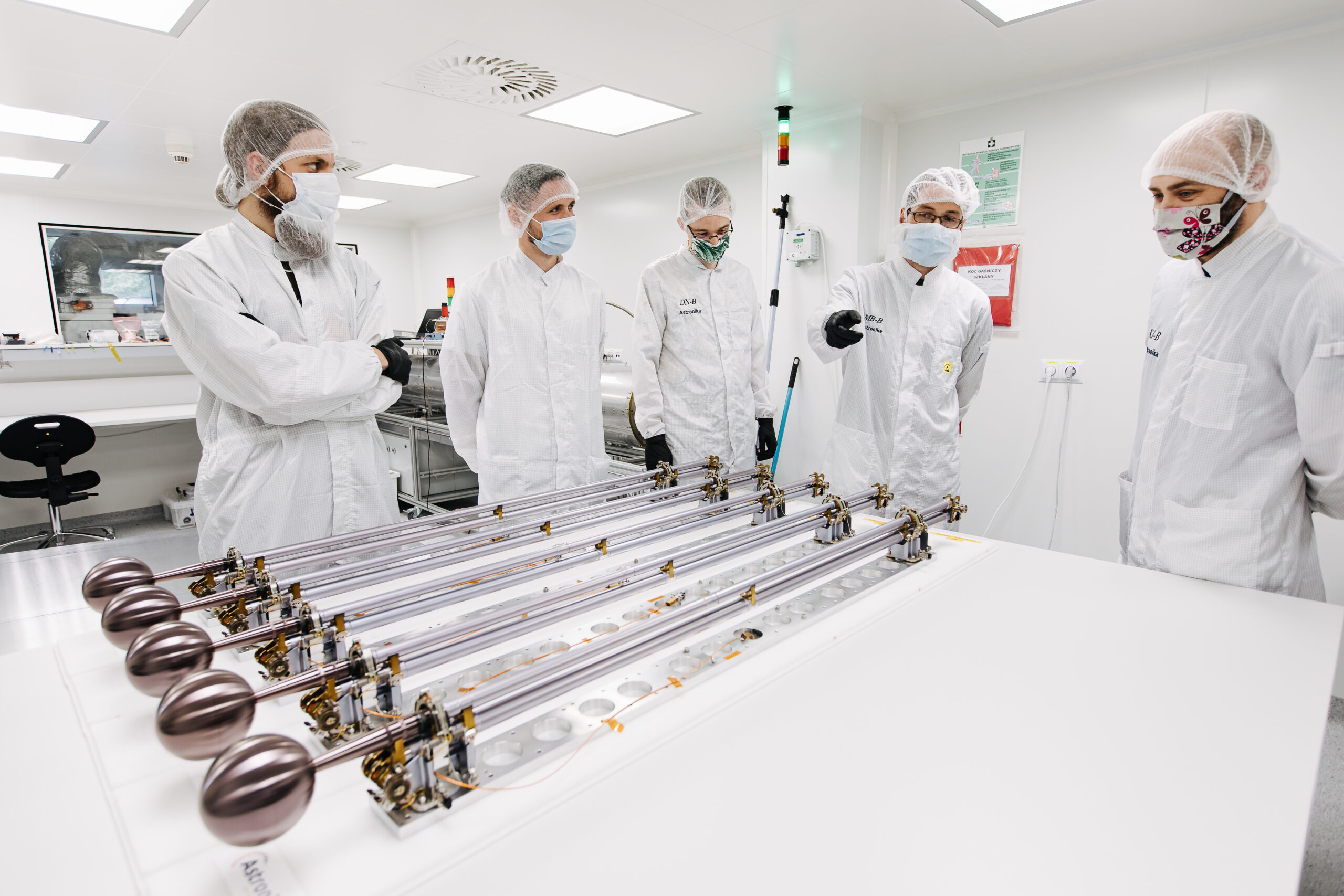
LP-PWI consist of four identical deployable booms located individually on various sides of the JUICE S/C. Each consists of two composite limbs connected with hinges and has a mass of c.a. 1.4kg. They are intended to deploy and position the Langmuir Probes 3 meters away from the spacecraft at a 135-degree angle from the initial position. Due to a low mass budget, the booms are actuated by drive springs without a damper, and therefore utilize their elasticity to compensate the residual end deployment shock energy.
RWI consists of three pairs of mutually orthogonal tubular booms (called SDAs, Single Dipole Antennas) assembled with a preamplifier electronic box, and located on the second segment of the magnetometer boom of the JUICE S/C. When stored, the tubular booms possess potential energy which actuates their deployment; this energy needs to be additionally damped by a miniaturized oscillatory damper located inside the storage reel. RWI has a mass of 2.2 kg and deploys to a relatively long distance of 2.5m (tip-to-tip).
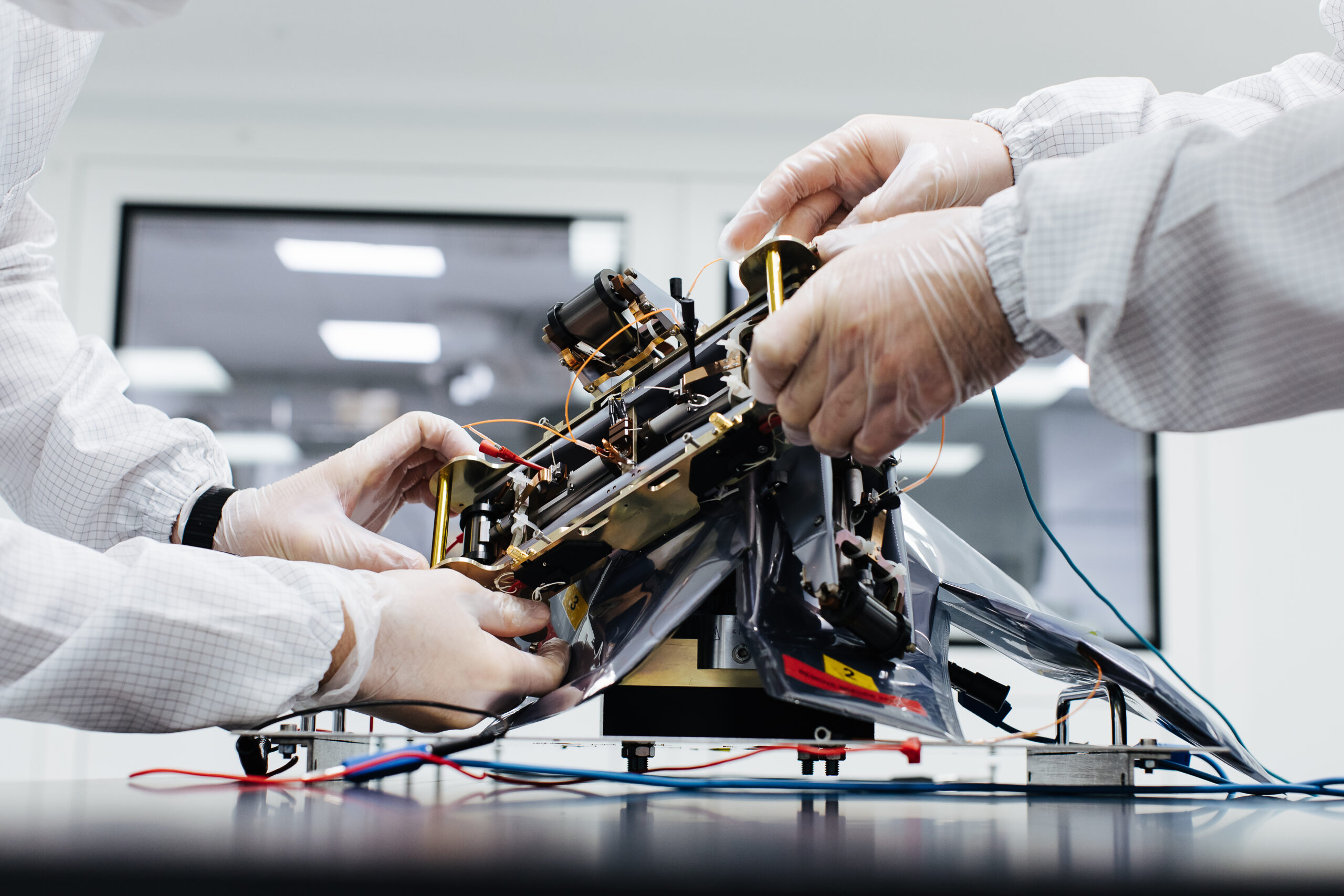
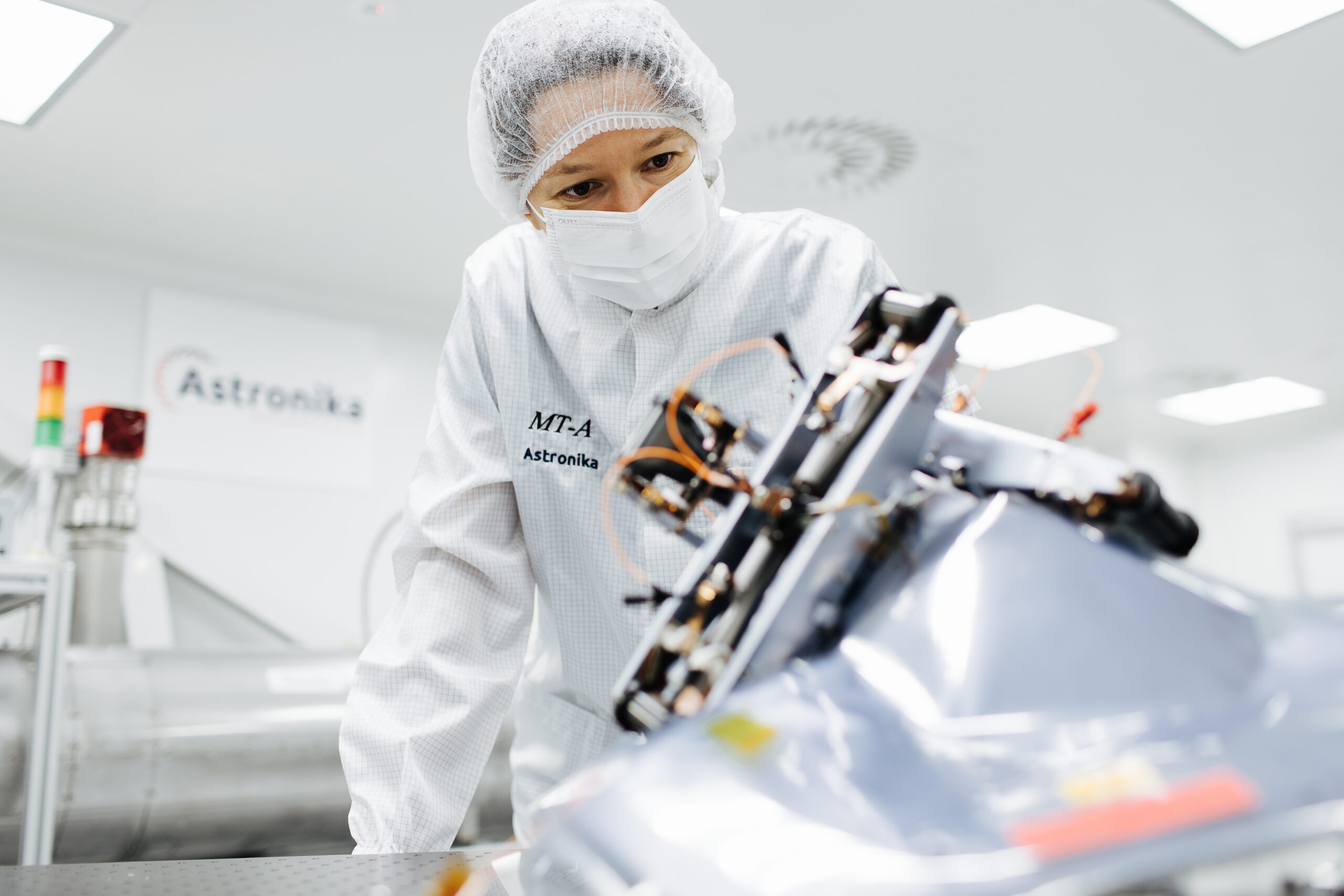
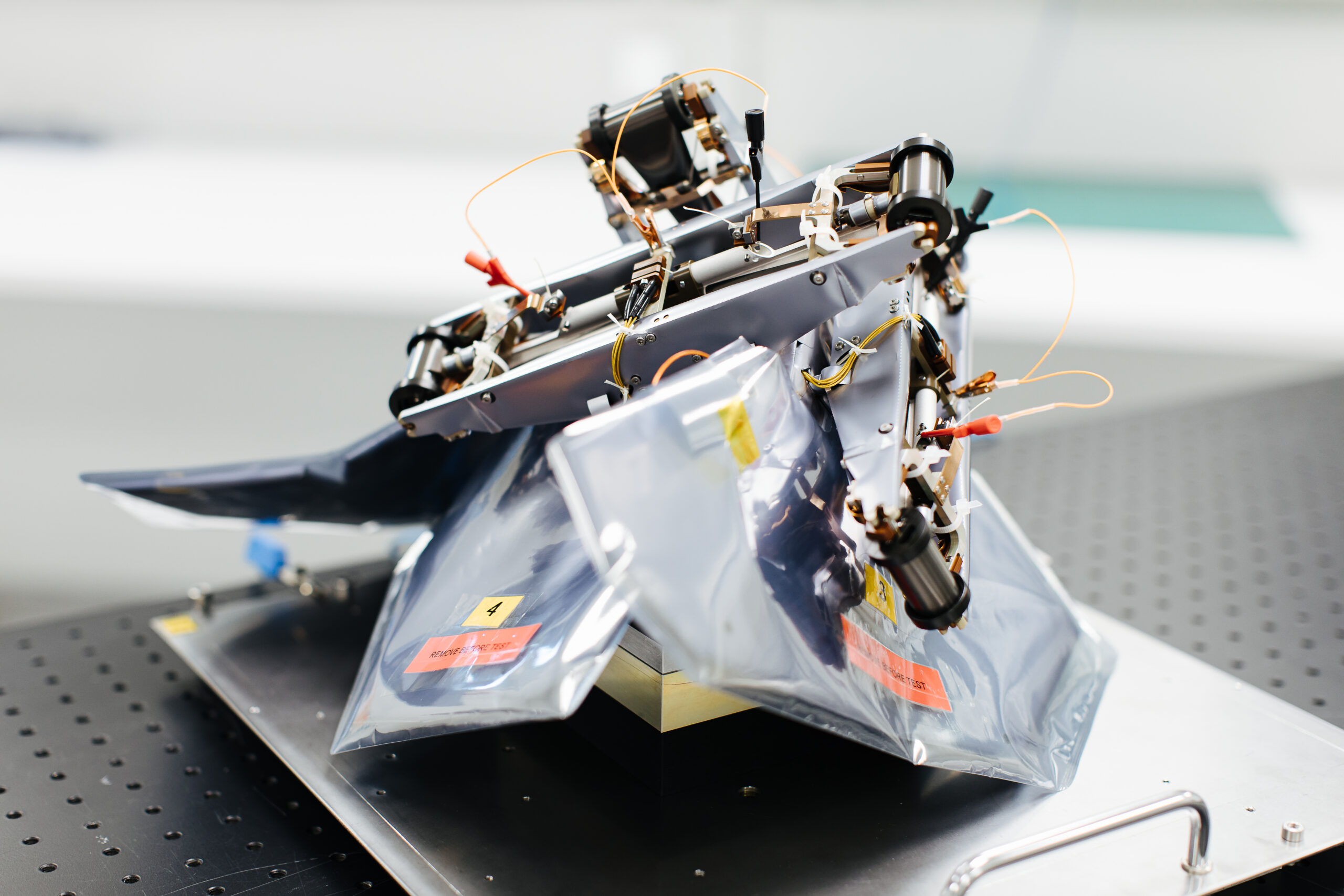

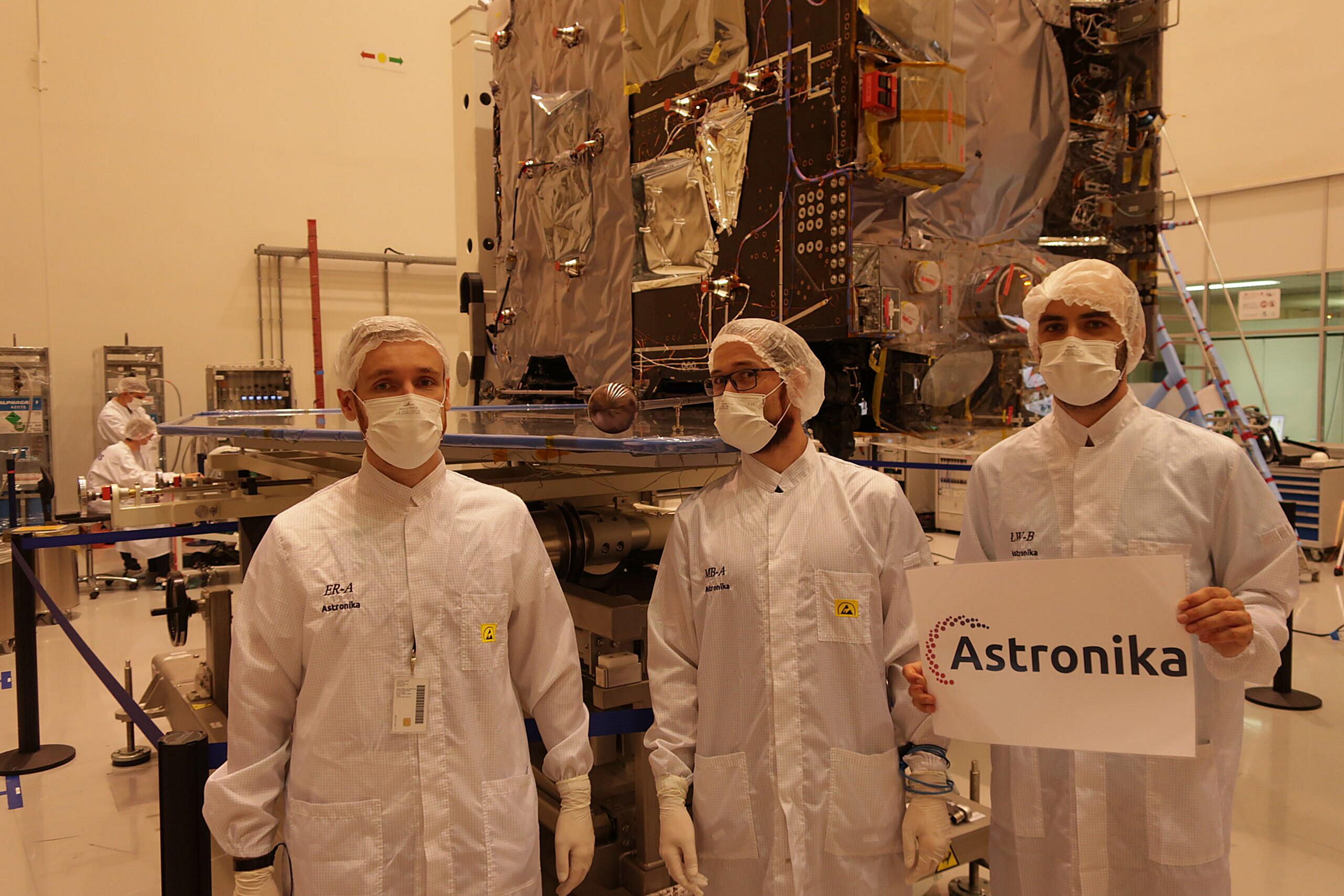
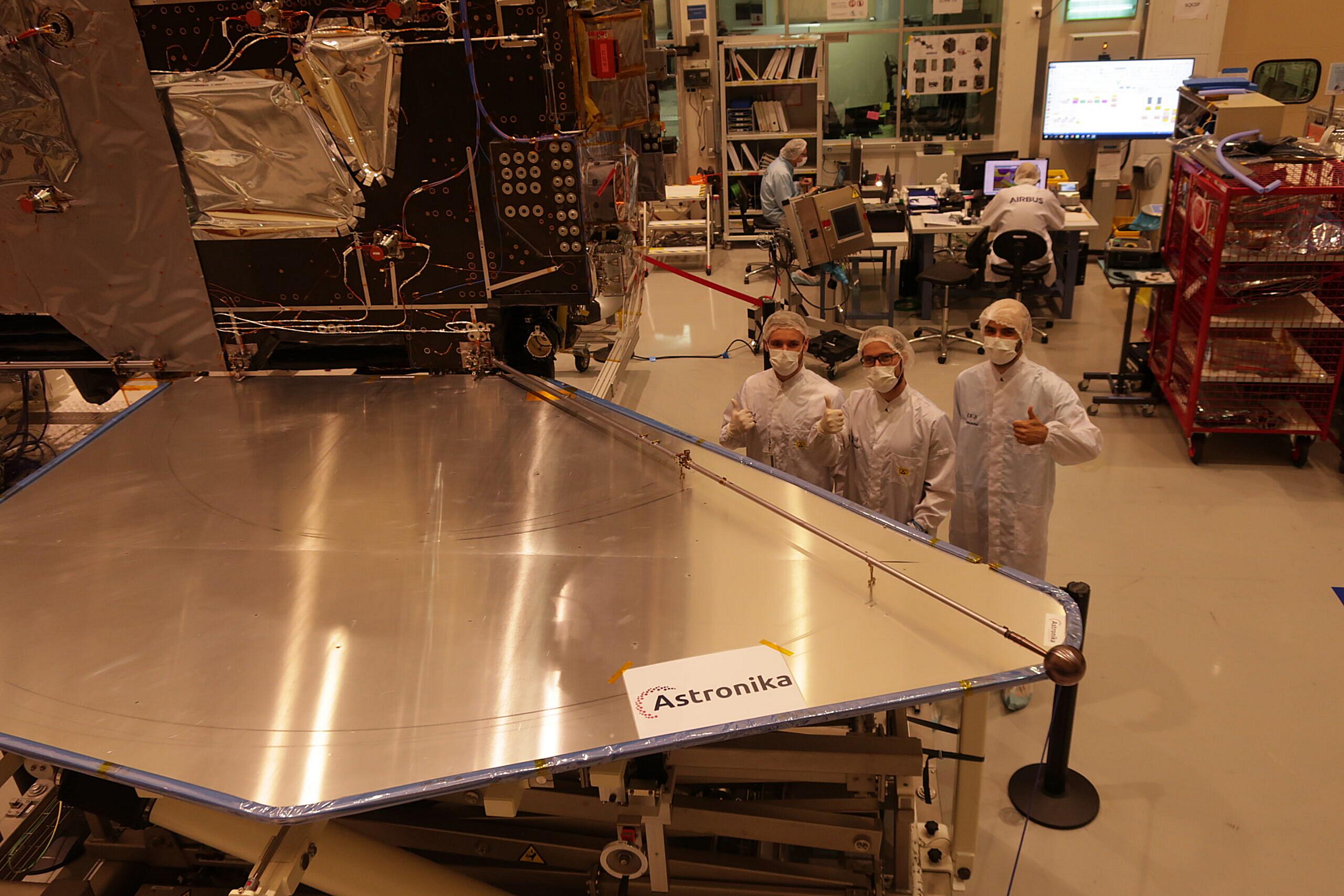
Credits: Airbus
The development of both of these instruments was extremely challenging due to their relatively low mass budget and large deployment envelopes as compared to their stowed size. Additionally, as a spacecraft appendage they are exposed to a deep space environment, including large temperature ranges from ca. +200°C to ca. -200°C, which entailed the qualification of unique materials and coatings (e.g., DLC on CuBe2 in RWI, or CFRP tubes covered with SLI in LP-PWI).
The project is funded by ESA Prodex in coordination with the Ministry of Education and Science.
The leader of the RPWI consortium is the Swedish Institute of Space Physics in Uppsala, and the leading scientific center in Poland is the Space Research Centre PAS in Warsaw.
Notably, the leading partners for Astronika in producing these instruments are Tohoku University in Japan, KTH Royal Institute of Technology in Sweden, and many others. We will tell you more about them in the next post on our site.


